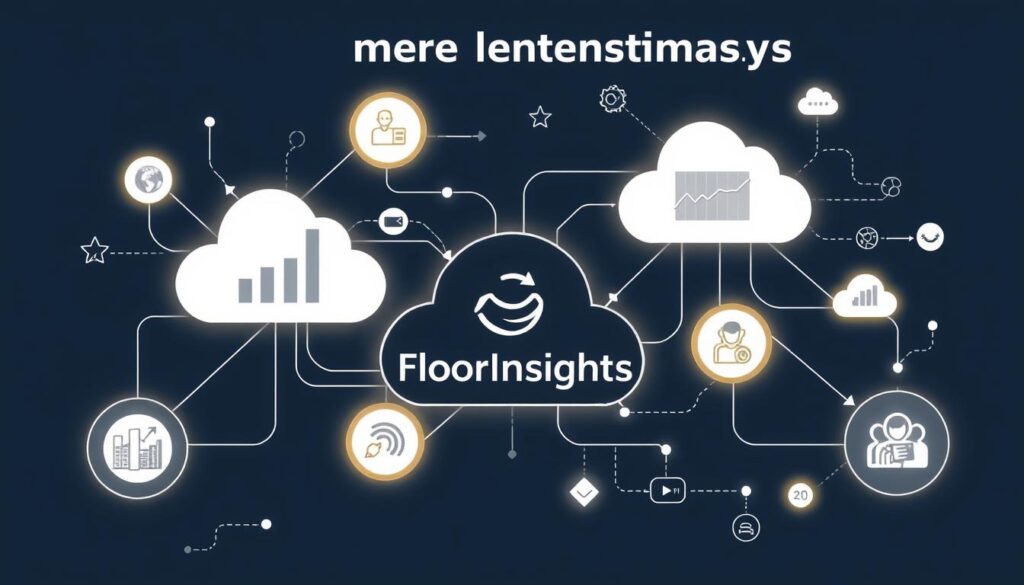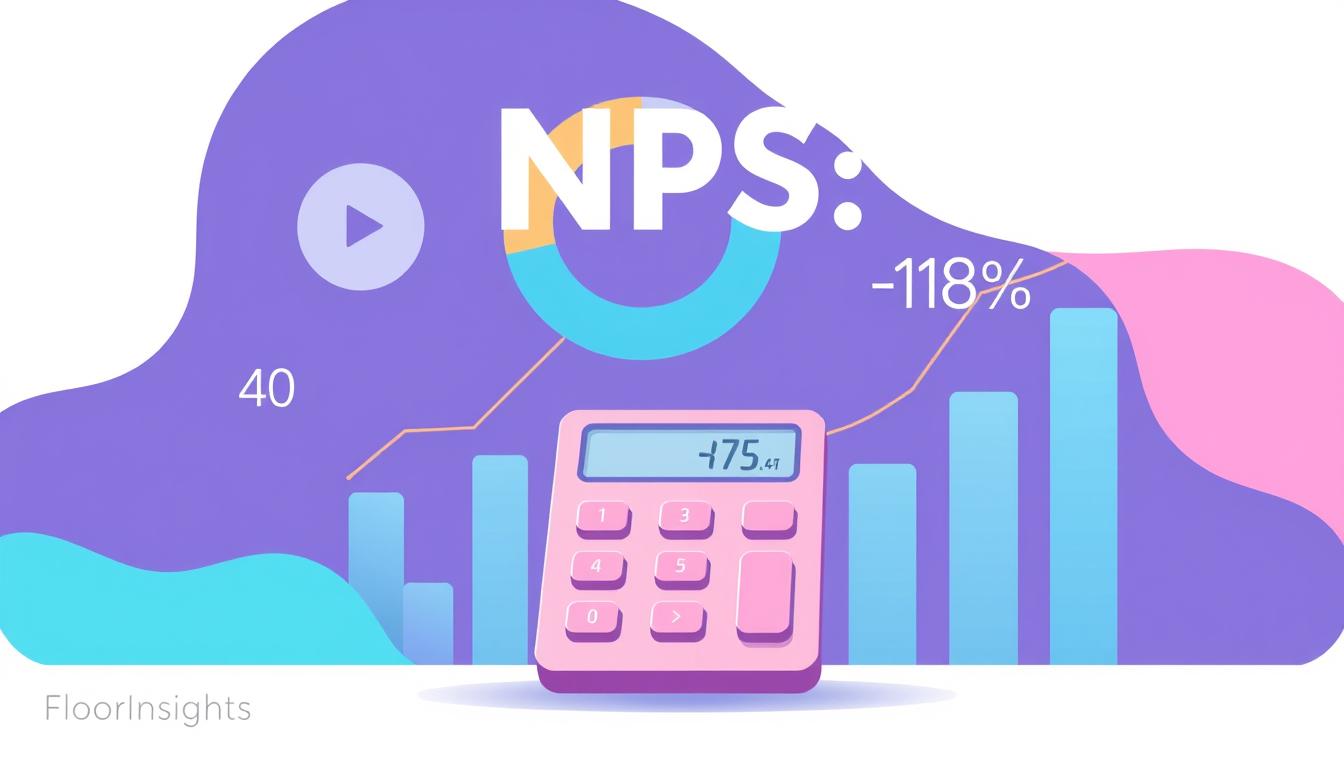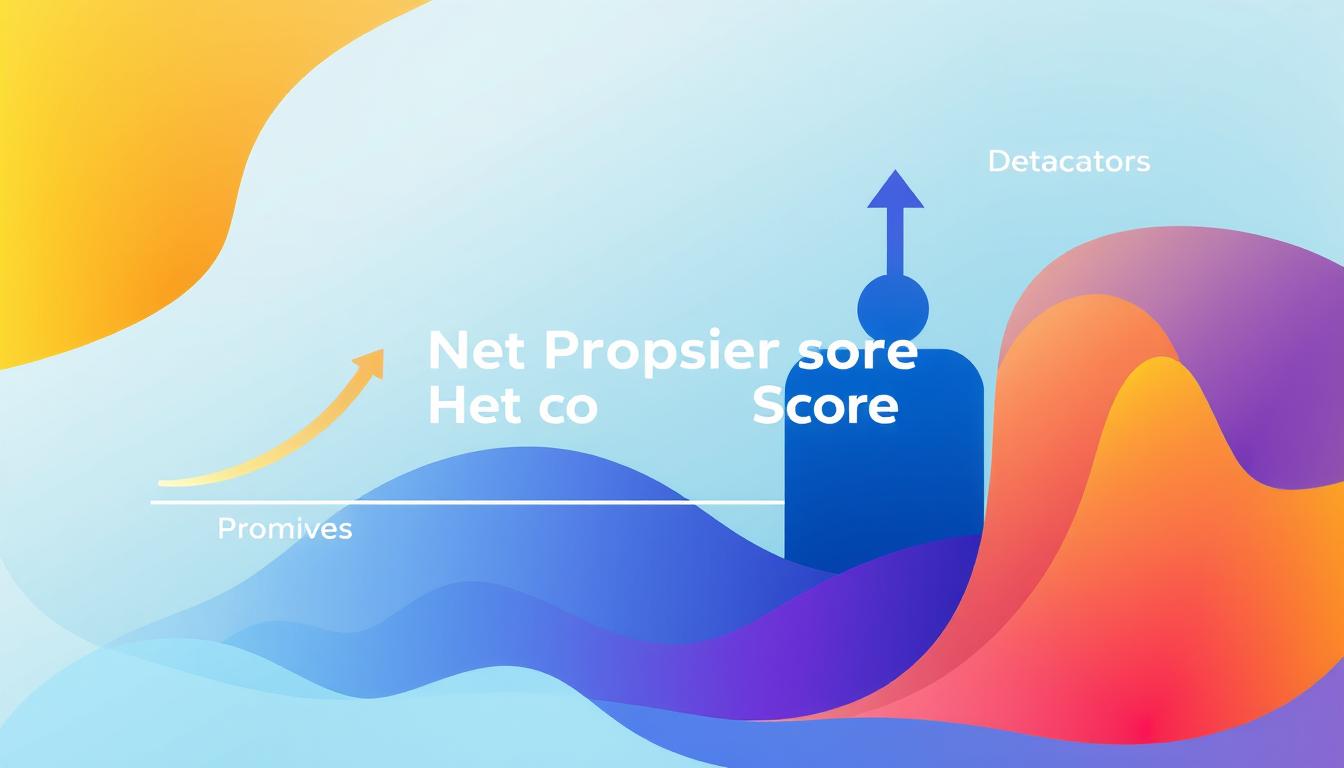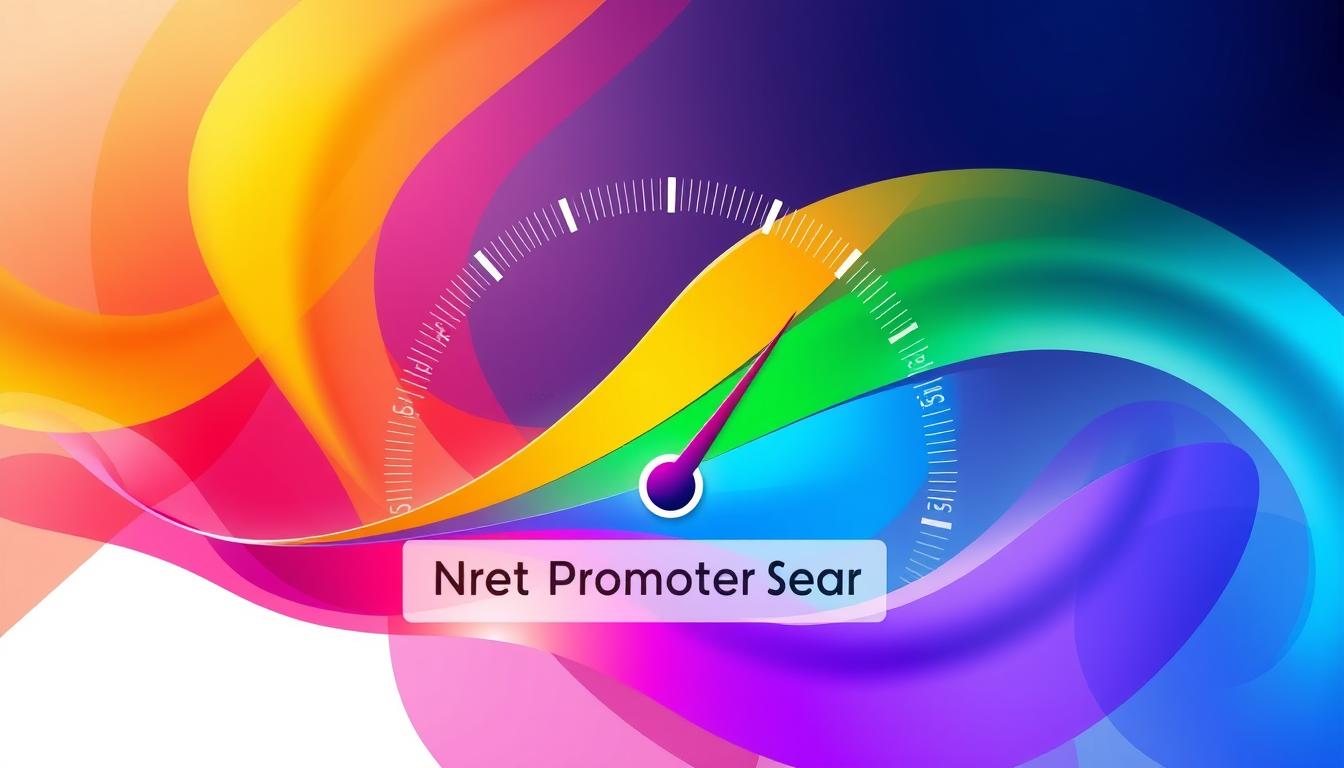In today’s competitive landscape of the technology industry, we recognize the significance of understanding the Net Promoter Score (NPS) for cloud service providers. This key performance indicator serves as a critical measure of customer loyalty, satisfaction, and overall brand perception. Throughout this article, we will delve into how NPS elevates cloud services, fosters customer loyalty, and drives growth, particularly in the rapidly evolving Indian market. Our exploration will cover the significance of NPS, its implementation, and the profound impact it has on retention strategies and revenue growth for cloud service providers.
Key Takeaways
- Understanding the role of Net Promoter Score in customer loyalty.
- Identifying how NPS drives service improvement for cloud service providers.
- The importance of actionable insights gained through NPS surveys.
- The impact of customer feedback on retention strategies.
- Navigating the challenges in implementing NPS for cloud services.
- Best practices for conducting effective NPS surveys.
Understanding Net Promoter Score and Its Significance
The landscape of customer experience increasingly revolves around metrics that define satisfaction and loyalty. One such key metric is the Net Promoter Score (NPS). Understanding this tool and its implications for customer loyalty helps us align our strategies with client expectations, ensuring long-term success.
What is Net Promoter Score?
Net Promoter Score is a widely recognized customer experience metric that gauges customer loyalty and satisfaction. The process involves asking customers how likely they are to recommend a service on a scale from 0 to 10. This simple question yields valuable insights. Customers scoring 9 to 10 are classified as promoters, scores of 7 to 8 indicate passives, and 0 to 6 define detractors. By analyzing these segments, we gain a clear overview of customer sentiment towards our offerings.
The Concept of Customer Loyalty
Customer loyalty plays a pivotal role in the success of any organization. Loyal customers not only advocate for our brand but also drive referrals, enhancing our reputation in the highly competitive domain of cloud services. This connection between loyalty and the Net Promoter Score is vital. By fostering strong relationships with our customers, we create a robust base of advocates who can influence the market positively. Understanding these dynamics enables us to tailor our services to meet customer needs and expectations more effectively.
| Customer Segment | Score Range | Summary |
|---|---|---|
| Promoters | 9-10 | Highly satisfied customers who are likely to recommend the service. |
| Passives | 7-8 | Satisfied customers but not highly enthusiastic. They can be easily swayed to competitors. |
| Detractors | 0-6 | Unhappy customers who may damage the brand through negative feedback. |
The Role of NPS in Cloud Service Providers
NPS serves as a critical tool for cloud service providers, guiding how we build and maintain customer relationships. By focusing on NPS, we can better understand customer satisfaction and loyalty, which directly impacts our service offerings and business growth.
Strengthening Customer Relationships
Recognizing promoters through the NPS framework allows us to nurture valuable connections. These customers not only provide us with repeat business but often become advocates for our brand. Encouraging them to share positive experiences can significantly influence potential new clients. By understanding what drives satisfaction from our promoters, we can hone our strategies to solidify these relationships further.
Driving Service Improvement Initiatives
Feedback obtained from NPS surveys provides insights that drive our service improvement initiatives. Listening to customers helps us pinpoint areas needing enhancement, ensuring our cloud service offerings remain competitive. We prioritize changes based on customer input, allowing us to enhance user experience and adapt services to meet their evolving needs.
| Aspect | Impact on NPS |
|---|---|
| Customer Advocacy | Increased positive word-of-mouth and referrals |
| Feedback Utilization | Direct influence on service enhancements |
| Relationship Building | Stronger connection with customers |
| Market Competitiveness | Ability to adapt to customer needs swiftly |
Benefits of Implementing an NPS Survey Platform
Implementing an NPS survey platform brings significant advantages to cloud service providers. This vital tool enables us to gather and analyze customer feedback efficiently, allowing us to gain actionable insights that inform our strategic decisions. Through this platform, we effectively engage with our customers, fostering a deeper understanding of their experiences.
Gaining Actionable Insights
Actionable insights derived from our NPS survey platform allow us to identify areas for improvement, focusing our efforts where they matter most. By interpreting the data collected through regular surveys, we can spot emerging trends, ensuring that our services align with customer expectations. Ultimately, this leads to better service offerings and heightened customer satisfaction.
Measuring Customer Sentiment Effectively
This platform excels in measuring customer sentiment, which is crucial for maintaining a competitive edge. We can assess how our customers perceive our solutions by regularly deploying NPS surveys. This ongoing feedback loop helps us proactively address issues, tailor our services, and enhance customer engagement, thereby increasing loyalty and encouraging referrals.
| Benefit | Description |
|---|---|
| Actionable Insights | Helps identify strengths and weaknesses in services based on customer feedback. |
| Customer Sentiment Measurement | Facilitates understanding of customer perceptions and satisfaction levels. |
| Improved Decision-Making | Informs strategic decisions aligned with customer needs and preferences. |
| Enhanced Customer Loyalty | Proactively addressing feedback cultivates loyalty and encourages referrals. |
Net Promoter Score Measurement Techniques
In the realm of customer feedback, we find a myriad of approaches to conduct effective Net Promoter Score measurement. Selecting the appropriate NPS methodology plays a crucial role in the accuracy and reliability of the data collected. Various techniques exist to capture customer sentiment, each tailored to meet different needs and preferences.
Choosing the Right NPS Methodology
We can choose from several NPS methodologies based on our customer demographics and engagement preferences. Electronic surveys are among the most popular due to their convenience. Telephonic interviews foster a personal connection, while face-to-face engagements can yield rich qualitative data. Understanding our audience helps us determine which approach will yield the most insightful feedback and improve overall service delivery.
Integrating NPS with Other Metrics
Integrating Net Promoter Score measurement with other performance metrics like Customer Satisfaction Score (CSAT) and Customer Effort Score (CES) enhances our understanding of customer experiences. This integration allows for a more comprehensive view, aligning our operational processes with what our customers truly value. By synthesizing these metrics, we can identify trends, implement improvements, and ultimately drive customer loyalty.
| NPS Methodology | Advantages | Disadvantages |
|---|---|---|
| Electronic Surveys | Convenient, cost-effective, scalable | Lacks personal touch, potential low response rates |
| Telephonic Interviews | Personalized interaction, immediate clarification | Time-consuming, higher costs |
| Face-to-Face Engagements | In-depth insights, strong rapport | Resource-intensive, limited to specific locations |
How NPS Impacts Customer Retention Strategies
NPS plays a vital role in shaping our customer retention strategies. By effectively identifying both detractors and promoters within our customer base, we can tailor our approaches to enhance customer loyalty and satisfaction. Understanding these segments allows us to focus on what truly matters to our clients.
Identifying Detractors and Promoters
Recognizing detractors—customers who express dissatisfaction—enables us to take proactive measures. We can engage with them through targeted communication, addressing their concerns directly. This proactive engagement serves to rebuild trust and mitigate the risk of churn. Conversely, identifying promoters highlights what aspects of our service resonate positively with our customers. Their feedback can guide us in reinforcing those successful elements across our entire service offering.
Engaging Customers Based on Their Feedback
Utilizing insights from NPS surveys allows us to engage our customers more effectively. We can develop personalized communication strategies that reflect the feedback provided, creating a stronger connection with our client base. By actively listening to our customers, we can implement tailored customer retention strategies that foster loyalty and increase satisfaction. Analyzing this feedback loops us into a continuous improvement cycle that ultimately enhances our service and reinforces customer relationships.

Challenges in NPS Implementation for Cloud Services
NPS implementation can present various challenges, particularly in retaining customer engagement during the survey process. As we explore these obstacles, we recognize the significance of balancing survey frequency and maintaining high response rates. We must also pay attention to collecting valid data to ensure our results are trustworthy and actionable.
Overcoming Survey Fatigue
Survey fatigue can significantly impact response rates. Excessive requests for feedback can lead customers to ignore our surveys, negatively affecting the quality of our NPS results. To address this, we should:
- Limit the number of surveys sent over a specific timeframe.
- Utilize different channels to deliver surveys, keeping the experience fresh for participants.
- Offer incentives for honest and timely feedback.
Ensuring Accurate Measurements
Ensuring accurate measurements in NPS implementation involves developing a consistent approach to data collection. We need to establish guidelines for when and how surveys are administered. Critical strategies include:
- Utilizing a standardized questionnaire to minimize biases.
- Timing surveys strategically to capture customers’ sentiments after key interactions.
- Regularly analyzing and adjusting our methods based on response trends.
By confronting these challenges head-on, we enhance the effectiveness of our NPS efforts. Such proactive measures not only optimize customer engagement but also improve the reliability of the insights derived from our NPS initiatives.
Leveraging Net Promoter Score Software for Better Performance
Utilizing net promoter score software equips us with vital tools to enhance our understanding of customer feedback. The right software can transform data collection and analysis into a streamlined process, ensuring we effectively gauge customer loyalty and satisfaction.
Key Features to Look For in NPS Software
When selecting net promoter score software, we should focus on features that can significantly elevate our analyses:
- Customizable survey templates: Enables the creation of tailored surveys that resonate with our customer base.
- Real-time analytics: Facilitates immediate access to customer feedback trends and insights.
- Automated reporting: Saves time by generating comprehensive reports, allowing us to focus on action-oriented strategies.
How Technology Enhances NPS Analysis
Advancements in technology play a crucial role in amplifying our NPS analysis. By utilizing sophisticated data segmentation, we can glean deeper insights into customer preferences and behaviors. This capability empowers us to:
- Conduct targeted follow-ups with different customer segments.
- Inform customization strategies for our services based on customer feedback.
- Identify long-term trends that impact overall customer loyalty and satisfaction.
The Impact of NPS on Growth and Revenue in the Technology Industry
The correlation between Net Promoter Score (NPS) and business success stretches beyond mere numbers. We recognize that strong customer loyalty serves as a linchpin for both growth and revenue in the technology sector. By understanding how to leverage NPS, companies can enhance their overall financial performance while fostering a dedicated customer base.
Linking Customer Loyalty to Financial Success
Loyal customers not only contribute to consistent revenue streams but often engage in repeat business with minimal price sensitivity. This aspect of customer loyalty plays a critical role in improving profit margins across companies. As organizations measure and analyze their NPS, they gain insights into customer satisfaction, allowing them to refine their service offerings. High NPS scores tend to correlate with financial success, highlighting the importance of nurturing customer relationships to drive growth.
Case Studies from Successful Cloud Service Providers
Several cloud service providers exemplify how NPS can be effectively utilized to fuel growth. Companies like Amazon Web Services and Microsoft Azure have integrated NPS into their customer engagement strategies. They continuously seek feedback from their users, translating insights into growth and revenue-enhancing initiatives.
- Amazon Web Services: By implementing NPS, they identified key areas for service improvement, leading to higher customer satisfaction and retention rates.
- Microsoft Azure: Their commitment to addressing customer feedback facilitated innovation and expansion in user services, resulting in a significant increase in market share.
Through these examples, we see how a commitment to customer loyalty not only secures a loyal client base but also creates pathways for increasing growth and revenue across the technology industry.
Best Practices for Conducting Net Promoter Score Surveys
When we consider conducting NPS surveys, it’s crucial to adopt best practices that ensure we capture meaningful feedback from our customers. This begins with deliberate timing and frequency of surveys, aimed at gathering insights while experiences are still fresh in the minds of respondents. Additionally, carefully crafting the NPS questionnaire can significantly impact the quality of responses we receive.
Timing and Frequency of Surveys
Optimal timing for conducting NPS surveys can lead to higher response rates and more accurate results. Key considerations include:
- Surveying immediately after a significant interaction, such as the completion of a project or support call.
- Avoiding overly frequent interruptions that could lead to survey fatigue among customers.
- Establishing a routine schedule that balances customer touchpoints with survey invitations.
Crafting the Perfect NPS Questionnaire
Creating an effective NPS questionnaire requires clarity and simplicity. Important elements include:
- Using straightforward language to avoid confusion.
- Formulating well-structured questions that encourage honest and reflective responses.
- Incorporating follow-up questions to gather additional context surrounding the initial score.
Conclusion
In summary, the importance of Net Promoter Score for cloud service providers is paramount. Understanding and implementing NPS effectively allows us to strengthen customer relationships, enhance our service offerings, and drive significant growth within the technology industry. By leveraging this score, we can genuinely listen to our customers, ensuring their voices are heard through actionable feedback.
Moreover, the impact of a well-executed NPS initiative extends beyond mere measurements; it fosters a culture of customer loyalty that is sustainable in today’s competitive landscape. As we continue to navigate the complexities of the technology market in India, prioritizing NPS principles will be essential for our ongoing success and customer retention.
Ultimately, by focusing on the insights gained from the Net Promoter Score, cloud service providers can cultivate a more loyal customer base, leading to increased revenue and a positive brand reputation. Embracing this customer-centric approach is not just beneficial; it is crucial for thriving in an ever-evolving industry.
FAQ
What is the Net Promoter Score (NPS) and why is it important?
The Net Promoter Score (NPS) is a customer experience metric that gauges customer loyalty and satisfaction. It is based on a simple question asking customers how likely they are to recommend our services to others on a scale from 0 to 10. Understanding NPS is crucial as it provides a clear indication of customer sentiment and can drive improvements in customer relationships.
How can we implement an NPS survey platform effectively?
Implementing an NPS survey platform effectively involves selecting the right tools that streamline the collection of feedback and analysis of results. We need to ensure that surveys are sent at the appropriate time to capture genuine customer feelings and use follow-up questions to gather insightful context.
What methodologies can we use for NPS measurement?
NPS measurement methodologies can include electronic surveys, telephone interviews, or in-person engagements, depending on customer demographics and preferences. Choosing the right methodology is essential for accurate assessment and effective feedback collection.
How does NPS influence customer retention strategies?
NPS plays a pivotal role in shaping our customer retention strategies, as it helps us identify both detractors and promoters within our customer base. By analyzing feedback, we can implement targeted engagement strategies to re-engage detractors while enhancing the experience for our promoters.
What challenges might we face when implementing NPS surveys?
Challenges in NPS implementation can include survey fatigue, where customers become overwhelmed with frequent requests for feedback. To combat this, we must carefully balance the timing and frequency of surveys to maintain high response rates while ensuring we gather valid and actionable data.
What features should we look for in net promoter score software?
When selecting net promoter score software, we should prioritize features such as customizable survey templates, real-time analytics, and automated reporting. These capabilities enhance our ability to analyze customer feedback efficiently and adapt our strategies accordingly.
How does NPS correlate with growth and revenue in the technology sector?
A strong correlation exists between NPS scores, customer loyalty, and financial success. High NPS scores often lead to increased revenue as loyal customers are likely to generate repeat business and offer referrals, contributing positively to our bottom line.
What are the best practices for conducting NPS surveys?
Best practices for conducting NPS surveys include considering the timing and frequency of outreach to ensure responses are captured while customer experiences are fresh. Crafting a straightforward questionnaire that encourages honest feedback is also essential, along with including follow-up questions for deeper insights.






